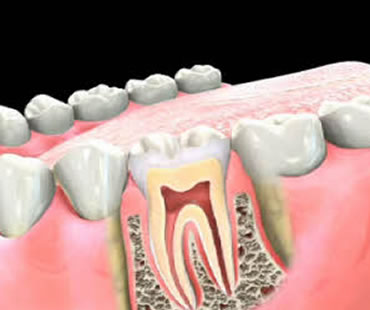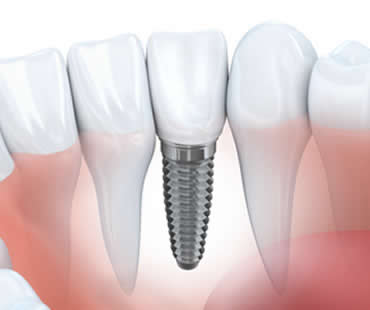
If you have been living with a mouth full of badly decayed teeth, infected gums or painful tooth infections, your dentist may have talked to you about how dentures can transform your smile. While no one wants to extract all of his or her teeth and have no remaining natural teeth, if your teeth have been a source of pain and embarrassment to you for years, having a beautiful new set of dentures could sincerely change your life.
Dentures are very natural-appearing replacements for an entire mouth of missing natural teeth and gum tissue. Dentures are removable and can be cleaned thoroughly each day, unlike examples like dental crowns or dental bridges that are permanently affixed to your mouth.
Badly decayed teeth and other oral issues can lead to chronic pain that spreads from the mouth to other areas of the face, head and neck. This pain can disrupt your life, leaving you irritable and moody, causing you to isolate yourself. Pain medications can lead you to feel groggy or off-balance, affecting your interactions with others in a negative manner. Once those teeth are removed and any underlying infection is addressed, you will be shocked at how much better you feel. The absence of this once-ongoing pain will feel as though you are free of a great burden you hadn’t realized you were carrying.
Years of poor oral health might have left you unwilling to smile broadly, or to be uncomfortable in public speaking, laughing or eating and drinking. You may avoid friends and family and you might choose not to form new relationships easily. Once your damaged teeth have been removed and you have been fitted for dentures, you will be amazed at the “new you.” The bright, perfect white smile that greets you in the mirror may look like a movie star’s smile, but in fact, it’s your smile. With your new dentures, you can feel confident as you move through life.
Contact one of our dental offices Kogarah and Haymarket

When a tooth is seriously decayed or has become infected, a root canal procedure can be done to repair the tooth and save it. During the procedure, the nerve and pulp are removed, while the remainder of the center of the tooth is thoroughly cleaned and then carefully sealed to prevent infection.
“Root canal” is the term for the natural space within the tooth’s center. The tooth’s nerve is in the root canal, as is the pulp (or pulp chamber), which is the soft area within the root canal. Because the tooth’s nerve isn’t vital to a tooth’s health, removing it doesn’t prevent the normal functioning of the tooth.
Removing the nerve and the pulp is necessary in some cases to address irritation, inflammation and infection stemming from severe decay, damaged or deep fillings, cracked or chipped teeth or facial trauma. When the nerve tissue and pulp become damaged, bacteria begin to form within the pulp chamber. This can lead to a serious infection or abscessed tooth. An abscess can form when the infection spreads past the ends of the tooth roots.
Additionally, severe infections can lead to bone loss around the tip of the root or holes in the tooth that drain the infection into the gums or through the cheek into the skin. It can cause swelling that spreads to the face, head, or neck.
Sometimes, the only signs you need a root canal procedure are more minor. They can include tooth pain when applying pressure or chewing, discoloration (darkening) of the tooth, tenderness and/or swelling of the gum tissue, or a pimple or blemish on the gums that is recurring. Acute sensitivity to cold or hot temperatures that does not abate with time can also be a sign.
Talk to your dentist or endodontist (a dentist whose specialty is the cause, diagnosis, prevention, and treatment of diseases and trauma to the dental pulp or nerve of the tooth) about your concerns. Your dentist will know what to do so you may make the best decisions for your long-term tooth health.
If you live in the Kogarah and Haymarket area and you need a root canal, contact our dental office today.

Teeth whitening is the most popular cosmetic procedure that dentists perform today. It can have a dramatic effect on your smile at a smaller cost than other cosmetic procedures. You can whiten your teeth yourself using at-home techniques, but often professional whitening with your dentist’s help achieves the fastest and most effective results. Let’s examine the whitening options provided by most dentists to help you evaluate what might work for you.
Whitening at your dentist’s office:
The dentist applies a whitening product to your teeth containing higher percentages of hydrogen peroxide than what is available in at-home kits. Heat or light may be used also. This technique produces quick, uniform results, but it does sometimes cause temporary gum irritation or tooth sensitivity. This method is expensive, ranging between $500 to $1,200.
Home whitening supervised by your dentist:
A customized mouthpiece will be created by your dentist for you to fill at home with whitening gel, which contains a lower strength of hydrogen peroxide then the in-office gel. You wear the mouthpiece at home for several hours each day, and your dentist supervises the whitening with regular checkups. This method is convenient and less expensive at $300 to $500, but it produces slower results than in-office methods.
Repeating the process:
Whichever type of teeth whitening technique you might choose, remember that it isn’t a permanent repair to your teeth. You will need to repeat the process every year or two. The length of time between treatments will increase if you don’t smoke and avoid foods that are known to stain your teeth, such as coffee and red wine.
We treat patients from Meadowbank and the surrounding area

Chewing and swallowing can be tricky after wisdom tooth extraction. Gauze pads and a sore mouth can make eating sound unappealing, but it is vital to your healing to maintain a healthy diet. When you have a tooth extracted, a clot forms to help with healing. It’s important not to disrupt the clot, which means it is crucial to maintain a soft-food diet. In addition, spicy, acidic or hard-to-chew foods can cause additional discomfort and prevent healing.
For the first one or two weeks after your wisdom tooth extraction, plan to stick to a diet of soft, easy-to-chew foods. This guideline does not mean you are stuck eating Jello for your entire recovery period. Some suggestions for healthy foods that would be appropriate after wisdom tooth extraction include:
- Mashed potatoes
- Milkshakes
- Cottage cheese
- Macaroni and cheese
Be careful never to use a straw during recovery, as the suction can remove the clots in your gums and create problems with healing. Some of these foods may still be too chewy, so you will need to gauge if they need to be cooked longer or further softened to make them easier to ingest. Pasta or macaroni can be overcooked to make it easier to chew, and soups can be blended to eliminate chunks of vegetables or meat. Be sure to follow the aftercare and eating recommendations of your oral surgeon, and don’t push yourself to return to normal foods until your mouth feels ready.
Schedule your appointment at our Kogarah and Haymarket dental offices

Your teeth and gums are physical assets that you want to keep healthy your whole life, and the best way to do that is to take care of them. Proper dental care needs to begin at a young age so that good habits are established for life. It is a parent’s role to teach children proper hygiene, and to ensure they get professional treatment. Here are some ways that you can help your child learn good dental habits.
Supervise brushing:
Parents should watch children brush their teeth, especially for ages seven and under, to ensure the appropriate amount of toothpaste is used and that none is swallowed. Have your child brush for about two minutes, and make sure all areas of the teeth and gums are cleaned. Provide tips and help as needed.
Establish good eating habits:
Teach your child that diet impacts oral health. Some foods worsen plaque buildup and introduce damaging acid into the mouth, leading to increased tooth decay and higher risk for cavities and gum disease. Certain foods and drinks are also known to stain teeth, or cause bad breath.
Promote water consumption:
Drinking water not only is good for your overall health, it’s also helpful to your mouth. Encourage your child to drink water after eating, especially if it’s not possible to brush teeth right away. Also, fluoridated water is proven to help fight cavities.
Visit the dentist:
Begin taking your child to the dentist around age one, so that the child gets good dental care and learns that dental visits aren’t scary. Have a positive attitude about checkups, and consider taking your child to a pediatric dentist who specializes in children’s oral health.
Be a role model:
As the saying goes, practice what you preach. Set a good example of brushing at least twice daily, flossing every day, limiting your intake of staining foods and drinks, and visiting your dentist regularly.
We look forward to seeing you in our Kogarah and Haymarket dental offices

Dental implants are the best restorative choice for replacing a tooth that is missing. Whether the tooth has come out due to some kind of facial trauma or an infection or other issue, dental implants are the solution. The real difference in quality between a dental implant and other restorations such as bridges lies in the fact that the dental implant is placed directly into the patient’s jawbone, eventually fusing there through a process known as ossification.
Over time, ossification provides the kind of tooth base that is only seen elsewhere in natural teeth. When a dental implant is successful, it is as secure and as natural looking as a patient’s own original teeth; however, in some cases, dental implants fail. Sometimes they fail repeatedly. What’s causing these dental implant failures? Here are some potential causes.
Sometimes the implant doesn’t fuse with the bone and the bone shrinks away from the implant, leading to implant mobility or even the implant falling out. Patients who have weak bones due to age, osteoporosis, years of being edentulous (toothless) or another medical condition will find dental implants more challenging. If you’ve been having issues with failure to ossify, your dentist might recommend a bone graft to rebuild the jawbone to a healthy level so that dental implants can properly fuse.
In other cases, persistent infection may result in repeated implant failure. Signs of infection are continuous bleeding, swelling at the implant site or acute inflammation of the gum tissue at the implant site. Pus may be evident, or a bubble might appear on the gumline. Some health issues such as diabetes, auto-immune disorders or treatments like cancer therapies can weaken the immune system and leave the implant site vulnerable to infection. Your dentist might prescribe antibiotics or recommend you see an endodontist for a root canal treatment.
If you’re concerned about your dental implant, talk to Meadowbank dentist Dr. Anju right away. Find out what steps you need to take to ensure that your dental implants are successful.
If you live in the Kogarah and Haymarket area contact us today








